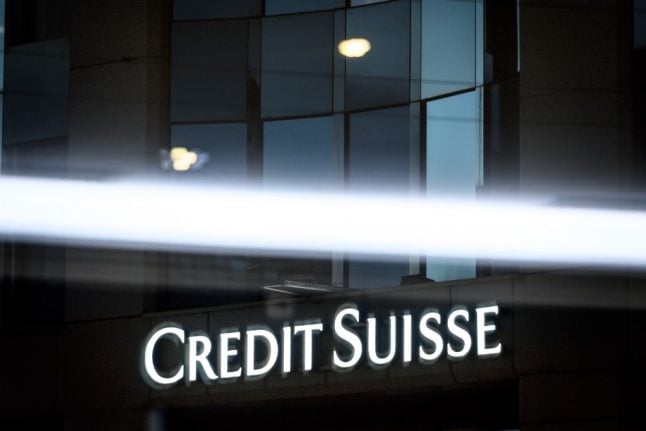Twenty-four members of the senate, or Council of States, voted in favour of the so-called "Lex USA" deal, while 15 were opposed and two abstained.
To come into force, the controversial accord must now clear Switzerland's lower house, or National Council, which is expected to vote next Tuesday.
At the end of May, the Swiss government accepted the take-it-or-leave-it deal proposed by Washington, sparking anger across the Alpine country's political spectrum.
The National Council had been due to debate the deal last week, but with lawmakers up in arms after failing to receive information about Washington's conditions, the house voted to hold off on making a decision.
The US side aims to have the deal in force by July 1, and pledges to publish details thereafter, but officials and Swiss media have said it involves massive fines in proportion to the banks' alleged wrongdoing.
Swiss banks are believed to hold accounts worth billions of dollars belonging to American citizens that are not declared to US tax authorities.
The banking sector has expressed support for the deal, saying that it wants to draw a line under an issue which has poisoned ties with the United States.
But without parliamentary approval, the banks risk falling afoul of Switzerland's banking secrecy laws if they hand over client information.
With the global economic crisis having put tax havens into sharp focus, Switzerland has fought to defend its long-cherished principle of secrecy by giving ground in some areas but declining to allow the automatic handover of account details.
If it comes into force, the deal would bring legal closure for Swiss banks after a legal assault by US authorities which has put their American and global operations at risk.
The battle began in 2009 after Swiss banking giant UBS was fined in the United States for complicity in tax evasion, and wealthy Americans began looking for other places to stash their cash.
Despite warnings from Switzerland's banking association, other players in the country sought to snatch former UBS clients and their undeclared holdings.
Fourteen Swiss banks have found themselves in US investigators' sights for doing so.
Two of them are cantonal banks — run by the Swiss equivalent of US states — and the threat of legal action raised the spectre of a massive bill for taxpayers if they were found guilty and needed state support to deal with the consequences.
TAX EVASION
‘Lex USA’ bank accord clears Swiss senate
Switzerland's upper house of parliament voted Wednesday in favour of a secretive deal between Bern and Washington to settle a legal battle over Swiss banks' alleged complicity in tax evasion by Americans.
Published: 12 June 2013 18:37 CEST

Parliament building in Bern. Photo: Admin.ch
Url copied to clipboard!


 Please whitelist us to continue reading.
Please whitelist us to continue reading.
Member comments